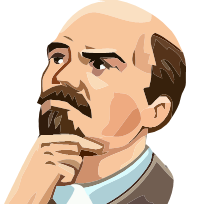https://nitter.net/reddit_lies/status/1706839975705051465
What's really hilarious is the fact elite Romans despised the primitive capitalists amongst their midst, it's almost like Roman society was defined by landed nobles who relied on slave labor to generate accumulation for the sake of status and luxury and not capital gains through the exploitation of a working class for the sake of reinvestment in productive assets
The debased money grubber was an archetype in Roman literature, and yet these dipshits still think Roman society was defined by capitalism lmao
Yeah. Publicani, usually cited as example of protocapitalist ventures, were bashed even by the people from aristocracy doing exactly the same thing, but personally by the office instead of equites forming an company.
Wait a second, is that some of the dreaded example of “The history of all hitherto existing human society is the history of class struggles.”? Oh oh no, we need immediately derail the line of thoughts into some romaboo nitpicking of legionnary armour details!
https://hexbear.net/pictrs/image/756f0f84-7d0a-4a03-a366-237fb277c35c.png?format=webp
Heh, Romans owned houses, paid wages (of course a cracker like me aren't going to mention the slaves), and traded goods. CAPITALISM!!!
Why is it that libs never know what capitalism is? And could this pretentious asshat be more reductive than this? All it takes to disregard Roman society as either capitalist or communist (who would even claim that it was communist lol) is to look at the class structure of the Roman society.
And gosh, calling yourself Publius like you're some expert on the Roman empire and then acting smug and dumb as a bag of rocks means it's definitely a white right-winger.
A block, a stone, a worse than senseless thing. This man has forgotten great Pompey.
To be fair to poor Publius, state of his nose suggest severe longtime overdose of something nasty.
Nah they got around that by calling them slaves.
Then again the soldiers didn't exactly always get paid so really they weren't known for paying workers
Capitalist propaganda is so entrenched that liberals and just about everyone who's apathetic to politics around them don't just know what Marxism is, they don't even know what Capitalism is. The strongest propaganda apparatus on the planet truly is something horrifying to behold, because it spawned us smug, condescending, confidently wrong internet losers who are almost impossible to deprogram.
Good thing there's at least hope and normal people are waking up to the realities around them, and their bubbles are starting to show cracks. So don't let my comment get too doomerish for you, remember that I'm a Polish communist. If I could do it, anyone can. We just need the proper conditions for it.
Also: Jesus what a fucking dork, the replies really are a sight to behold even after I wrote all that. Fuck that website man.
Arguably, it already is barbarism. But many times before, there have been times as barbaric or more than this, and at a certain point even people in reactionary areas like Bavaria, in the most impoverished rural areas of the world like say 1930s China, in Latin American barrios and indeed even disadvantaged communities inside of the centers of capital and empire have eventually said enough's enough and at least attempted to throw off their shackles - or even earlier, if you count the various medieval and early modern era revolts by peasants, indigenous people, etc.
Things are bleak now, and they might get bleaker, but giving into depressive fatalism is not the solution.
spoiler
I'm gonna have to go to Poland again next week, that's gonna be psychic damage to look forward to.
Capitalism as a concept was invented to describe an existing phenomena ya dunce. The concept of capitalism is less than 200 years old.
The amount of people who believe that capitalism is when people trade stuff is incredible. I kind of wish that they would just say that capitalism as a concept is socialist propaganda rather than bastardising the concept, because that is effectively what they're doing with this little charade.
So do they believe that marxists think everyone was communist until 400 years ago

they do, there were several replies to that nature. asking how old communism is as an own, or even saying uhhh sweaty ancient Rome doesn't sound like communism to me!!! because apparently there have only been 2 ways people have organized themselves
Socialism is when the government does stuff
Capitalism is when people trade stuff
Claiming trade is capitalism is propaganda that makes it an unassailable position.
How can you be against something as good and obviously beneficial as trading?
Fierce denunciations of Marx are not uncommon, but the more popular tactic is to vaguely pay respects while completely underappreciating his work. The resulting middle-of-the-road position concedes that the history of all hitherto existing society entails some form of proto-capitalism, or “propertarian” forms of social relations. However, it does not appreciate the significance of the transition from feudalism to capitalism, the discontinuity between capitalism and previous modes of production, or identify as properly revolutionary the process whereby the seat of power was transferred from feudal lords to business owners (the bourgeoisie). Thus, it does not understand the true nature of capitalism, or how to organize to defeat it.
Capitalism brought with it an unprecedented expansion in social mobility, both upward and downward. The waning of aristocratic mores led to celebration, but it was short-lived. It soon became clear that these new capitalists were something akin to kings, even those of humble origins. And despite a lot of rhetoric about the freedom and equality of the laborer, capitalists routinely used force to discipline the working poor. Thus philosophers and clergymen of the time began to formulate criticisms of capitalism: it’s heartless, it’s exploitative, it tends towards monopoly, it rewards greed, and so forth.
Marx stood out from other anti-capitalist thinkers of his era precisely because while most focused on the many similarities between kings and capitalists, Marx focused on the differences. Even those who claimed the mantle of science, such as Proudhon, focused on how capitalists exploit the people: “the barons of the middle ages plundered the traveller on the highway, and then offered him hospitality in their castles; mercantile feudality, less brutal, exploits the proletaire and builds hospitals for him.” [4] Studying the threat of poverty and the batons of the police force, he emphasized the continuity with old forms inherited from feudalism, and pleaded for an enlightened future where we reject and transcend them. Marx was more concerned with the why. He wanted to understand what made capitalism unique. What exactly is exploitation? How do we measure it? How is this different in feudalism than in capitalism?
Marx’s impressive predictions are a direct result of this analysis. Weber paraphrases Marx as appreciating that “the limits to the exploitation of the feudal serf were determined by the walls of the stomach of the feudal lord.” [5][6] Under capitalism, on the other hand, we have profit-oriented commodity production. This means that neither “stomach walls” nor any other kind of natural limit impose themselves: accumulation can be infinite, and since everything is tradeable with everything else, the capitalist not only can but must (in order to compete) accumulate without limit. Growth for the sake of growth, a growth that is indifferent to what kind of work anybody actually does.
Rather than deny the virtues of capitalist competition, as many socialists still do, Marx actually conceded that capitalism had unleashed production and stitched together supply chains in a prodigious way: “what earlier century had even a presentiment that such productive forces slumbered in the lap of social labour?” [7] However, he went on to explain that this virtue would be its core vice, and lead to its downfall. A contradiction.
Adam Smith writes about how competition would help drive prices to their proper value vis-a-vis market needs, about how capitalists are “led by an invisible hand to make nearly the same distribution of the necessaries of life, which would have been made, had the earth been divided into equal portions among all its inhabitants, and thus without intending it, without knowing it, advance the interest of the society, and afford means to the multiplication of the species.” [8] Marx did not outright reject this mechanism, but he challenged the value-judgment. He predicted that even in the hypothetical case that a benevolent capitalist did not personally wish to exploit, they would have to do so anyway, or else they would be replaced by another willing exploiter.
To paraphrase William C. Roberts, capitalists are simply at the top of the pyramid of market-dominated producers. [9] What if humans, capable of rational deliberation, want to make healthcare free? What if they want to assert that the environment is valuable in itself? The invisible hand imposes itself decisively: “No.”
Marx described the phenomenon of “commodity fetishism”: through many small separate acts of exchange, we command each other to behave in very specific ways, while disclaiming this same power and attributing its commands to blind necessity. Commodities are inert objects, and humans are rational beings, but society operates as if humans were helpless against the pressures exerted by the market. Market domination even finds lucid expression in natural-sounding phrases like “if I don’t sell out to Facebook, they’ll just copy my features, so may as well do it myself” and “if I paid you more, I’d have to pay everyone more, and then we’d lose to the competition and all be out of a job.”
There is nothing wrong with denouncing American plutocrats like Bezos and Gates for greed, but we cannot stop there: we must understand that the system of exploitation is not held together by any individual’s vices. As Lenin put it, “The capitalists divide the world, not out of any particular malice, but because the degree of concentration which has been reached forces them to adopt this method in order to obtain profits.” [10] If one of them had a major change of heart and stopped pursuing ruthless accumulation, they would quickly be ousted by stockholders for endangering their investment. In the unlikely event that their stockholders were cooperative, a competitor would swoop in and relieve them of their commanding market share. This is not apologia for Bezos, but we need to understand that there is a talent to being a capitalist exploiter, or else we will underestimate our enemy. The market selects for profitability, and it selects well — it just doesn’t select for environmental responsibility or decency or who can bring the most benefits to the greatest number. From Marx, to Lenin, to Deng, we can observe a baseline level of respect for the enemy: “Management is also a technique.” [11]
On my view, the core Marxist insight is the following: Feudal lords were the masters of Feudalism. Capitalists, however, aren’t the masters of capitalism. They are merely the high priests of capitalism. The master of capitalism is Capital itself.
from https://redsails.org/why-marxism/
They are merely the high priests of capitalism. The master of capitalism is Capital itself.
Yeah, that is something Marx would have agreed with.
Yes if you think about it with enough nuance nuclear tipped ICBMs are just spears and therefore are human nature and therefore they're good
kinda reminds me of some of the very early contact reports and exchanges that occurred between indigenous peoples and explorers/settlers, as related in Mann's 1491. one of the stories that has stuck with me in the 15 years since i read it, is this one about some indigenous peoples brought back to the metropole to meet royals and curious elites in the 1600s. i want to say it was London, but that could just be me wanting it to be.
anyway, so this contingent of american indigenous is being shown the city streets and whatnot of the Great City and while they were reportedly impressed with all the stonework, they expressed much confusion about the extreme wealth inequality. they posed the question to the guide, gesturing to a few clearly starved men huddled in rags on the street being passed by a well-fed, fancy lad in fine furs, with the question being something along the lines of, "is this a punishment? why don't they bash that guy and take his things so they can be warm and eat?" apparently, no amount of explanation that the guide could come up with about "right and wrong" or "order" could dissuade the guests from seeing the gross inequality unto death from cold and hunger itself as the actual wrong.
but yeah, capitalism is clearly the original form of property relations. we can all remember the story of the first cave man to say "i own the mountains, the forests, the oceans, and the fields. you must pay me rent to sleep, farm, fuck, eat, harvest, swim and scratch your nuts." and how everybody was like, "yeah, that makes total sense innately that you, a mortal man, owns all the property."
That reminds me of an interesting read about how settlers taken from a very remote and scarcely populated island colony (to the point where they had very few of the usual structures of capitalism and the state) really didn't enjoy being forced to reintegrate into things like wage labor after they got relocated due to a natural disaster.
"Human nature" is always some extremely narrow definition given by non-philosophers.
Very quick philosophy lesson, "nature" basically means "essence" in one type of philosophy that thinks it's okay to reduce things to qualities that "make" a thing. So human nature is what all humans have, without which they are literally no longer humans, but something else.
Even then, this type of philosophy recognizes "accidental" properties, which are things that a thing can have without modifying its essence. So a swan is still a swan even if it has black feathers instead of white.
Now for the frustrating part: a human being not being greedy, brutal, participating in capitalism, whatever should not be dehumanized. This is not human nature. There's so much more interesting things about humanity that sets it apart from animality, like language and culture.
At best it’s the naturalistic fallacy since even if it were “natural”, being “natural” doesn’t mean it should continue.
This shit always irked me, like do those people even have any definition of "natural"? And also how most of them can even spew "natural" with a straight face while beliving god made everything? How does that even work, is human the only being with "unnatural" effects of intelligence or do we need to convince beavers to stop building dams?
do we need to convince beavers to stop building dams?
🦫


No more half measures Walter
Imo, "Capitalism is human nature" is kinda nonsensical because a lot of things are "human nature", including a lot of contradictory and mutually exclusive things. Are competition, greed and the desire to hoard wealth human nature? Sure. But kindness, cooperation and sharing resources are unarguably human nature as well. Everyone has, at some point in their life, harmed someone else or screwed someone over. But everyone has also helped someone else, or given something away expecting nothing in return.
Capitalism enables and rewards the worst aspects of "human nature" while punishing and suppressing the best ones.
One of the oldest disabled adult bodies ever found was from thousands of years ago. From her remains, the archaeologists determined that she was likely never able to walk. However, the only thing that seemed wrong with her body was her teeth. They were in bad shape because she was fed a lot of dates, probably because they were sweet. The fact that there has pretty much always been humans who take care of their disabled family like that proves to me that humans are naturally caring.
Imagine a nomadic group of humans give birth to someone who is paralyzed from the neck down at birth in a time before wheels. If humans were that selfish, we wouldn't see life long high needs disabled people living into their later years in that scenario. However, we still do. Many other creatures have very little tolerance for genetic variance, humans by comparison are amazing about this.
Since culture plays such an important role in how people act, I always argue that if we want to determine what "human nature" is, we must look at humans in nature, ie pre-agricultural societies. And as every internet leftist knows, those societies were typically much more egalitarian. Libs destroyed with facts and logic

Capitalism is great because look at the growth since 1800 compared to the growth from the stone age to 1800 but also capitalism is human nature so hunter gathers were capitalist too.
if communism no iphone, where was joan of arc's iphone?
Cavemen knew how to throw a spear before we understood ballistics
TIL, the ballistic missile is just human nature.
full communism: quarantined
chapotraphouse: banned
genzedong: quarantined
chapotraphouse2 (a seperate community created years before the ban of CTH1): banned
moretankiechapo: banned
Wage labor and private control of production for profit are human nature, which is why they had to be imposed on indigenous people and the working class at gunpoint




















